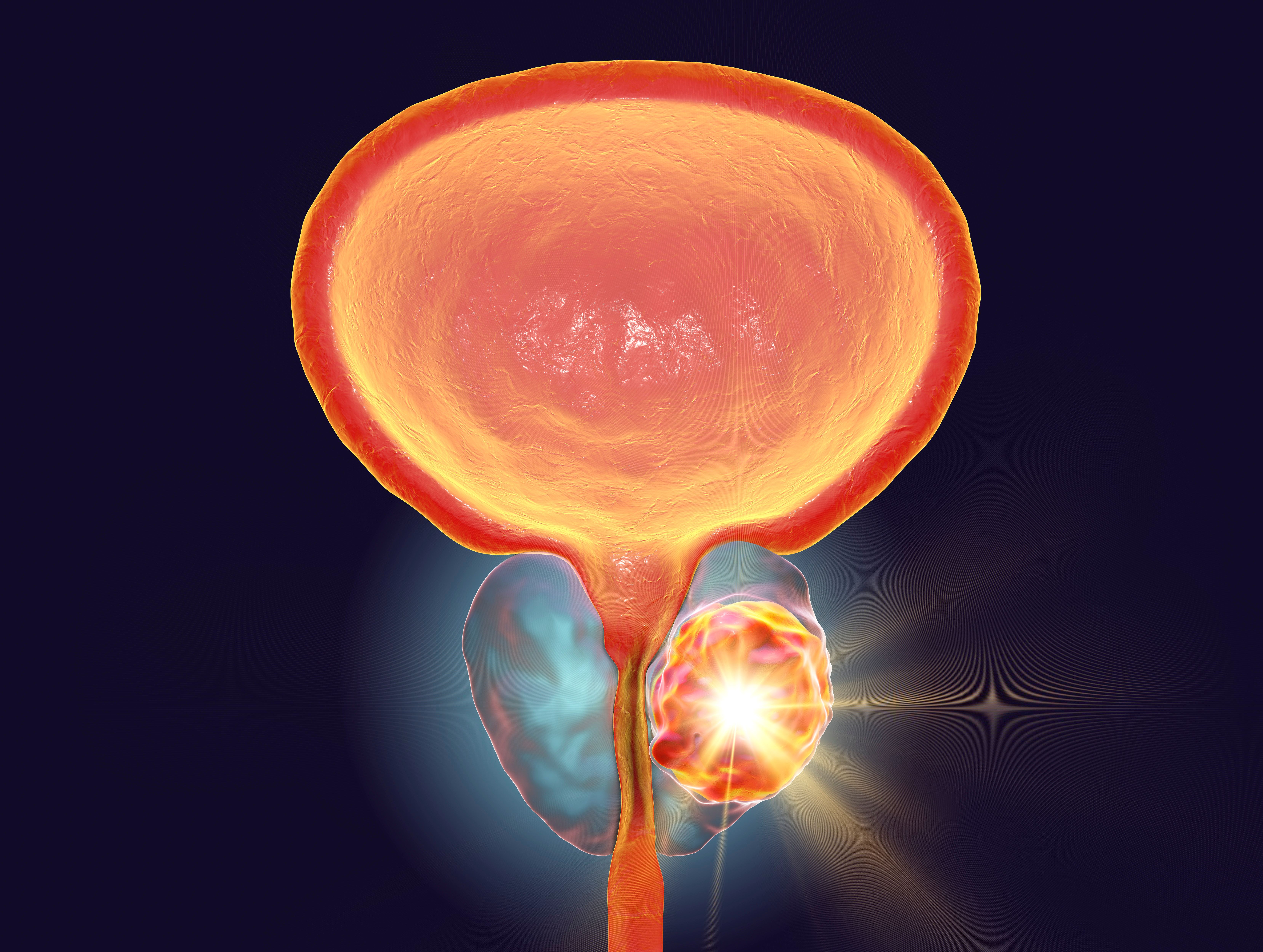News
Article
FDA Approves Ustekinumab-hmny Injection, a Biosimilar Referencing Stelara
Author(s):
Key Takeaways
- Starjemza, a biosimilar to Stelara, has been FDA-approved, demonstrating similar efficacy, safety, and quality in clinical trials.
- Both Starjemza and Stelara inhibit IL-12 and IL-23, targeting chronic inflammation in psoriasis, psoriatic arthritis, Crohn's disease, and ulcerative colitis.
A new biosimilar to ustekinumab (Stelara) has been approved by the FDA, further expanding treatment options for patients with immune conditions such as plaque psoriasis and psoriatic arthritis.
The FDA has approved ustekinumab-hmny injection (Starjemza; Bio-Thera Solutions, Hikma Pharmaceuticals) as a biosimilar referencing Stelara (ustekinumab; Janssen Biotech, Inc), according to a news release from Bio-Thera Solutions and Hikma Pharmaceuticals. The approval was based on a series of non-clinical and clinical data submitted to the FDA that indicates similar efficacy, safety, immunogenicity, and quality between Starjemza and Stelara.1
Image Credit: © Semi - stock.adobe.com

Starjemza Showed Similar Efficacy, Safety to Stelara in Clinical Trials
Stelara is a human monoclonal antibody designed to inhibit bioactivity of IL-12 and IL-23 through the prevention of binding to the surface of immune cells. Both IL-12 and IL-23 are part of inflammatory and immune responses in the body, but abnormal regulation of these interleukins has been found to contribute to chronic inflammation in psoriasis, psoriatic arthritis (PsA), Crohn disease, and ulcerative colitis. Like Stelara, Starjemza can prevent abnormal cell signaling and effectively block pathological processes associated with these disorders.1
A randomized, double-blind, phase 3 clinical trial was one of multiple to confirm the efficacy and safety of Starjemza, previously called BAT2206, compared with reference ustekinumab in patients with moderate to severe plaque psoriasis. Among 278 patients, the mean difference in percent change from baseline in Psoriasis Area and Severity Index score at weeks 8 and 12 was 0.964 and 1.774, respectively, with comparable results observed between each treatment group for key secondary end points. Ultimately, the investigators concluded that BAT2206 was comparable to its reference product.2
Starjemza was also compared with reference ustekinumab in a population of healthy subjects to determine rates of immunogenicity and its safety profile. The double-blinded, randomized, single-dose, parallel-group, phase 1 clinical trial enrolled 270 healthy Chinese males to receive either subcutaneous BAT2206 or reference ustekinumab. The results demonstrated that BAT2206 had comparable pharmacokinetic effects to reference ustekinumab sourced from either the United States or the European Union while presenting similar rates of treatment-emergent adverse events.3
Future Directions
This action builds on previous regulatory approvals of Stelara biosimilars, expanding treatment options for patients with various immune conditions. Before this most recent decision, the FDA approved 7 other Stelara biosimilars, including Steqeyma (ustekinumab-stba; Celltrion), which launched in the United States in March 2025. Following a litany of Stelara biosimilar approvals in 2024 and the approval of Starjemza, the FDA is poised to continue expanding available treatment options for patients suffering from a series of immune conditions.4,5
Previously, the biologics license application (BLA) for Starjemza was accepted by the FDA. In their news release announcing the acceptance, Bio-Thera Solutions noted that the BLA was accepted for Starjemza to be a proposed interchangeable biosimilar to Stelara. While Starjemza was granted regulatory approval as a biosimilar, it is unknown whether it has been granted interchangeability designation by the FDA.6
Interchangeable biosimilars are those that meet additional requirements outlined by health regulators, allowing an original product to be substituted with an interchangeable biosimilar without consulting a prescriber. For now, patients who may benefit from a Stelara biosimilar will have to consult with their primary care provider and local pharmacist before they receive the product. Biosimilars for Stelara, including Starjemza, may eventually be granted interchangeability designation following a thorough set of clinical trials to further determine their similarity in safety and effectiveness to the reference product.1,7
REFERENCES
1. Hikma Pharmaceuticals. Bio-Thera Solutions and Hikma Pharmaceuticals announce FDA approval of STARJEMZA (ustekinumab-hmny) injection, a biosimilar referencing STELARA (ustekinumab) injection. News Release. Released May 27, 2025. Accessed May 27, 2025. https://www.hikma.com/news/bio-thera-solutions-and-hikma-pharmaceuticals-announce-fda-approval-of-starjemza-ustekinumab-hmny-injection-a-biosimilar-referencing-stelara-ustekinumab-injection/
2. Man X, Zaharieva K, Pulka G, et al. A randomized phase III study to compare efficacy and safety of BAT2206 (proposed ustekinumab biosimilar) with reference ustekinumab in patients with moderate to severe plaque psoriasis. J Am Acad Dermatol. 2025;92(4):724-731. doi:10.1016/j.jaad.2024.10.104
3. Wu M, Li X, Yang D, et al. Comparison of pharmacokinetic similarity, immunogenicity, and safety of ustekinumab and BAT2206, in healthy Chinese male subjects, in a double-blind, randomized, single-dose, parallel-group phase 1 trial. BioDrugs. 2022;37(1):89-98. doi:10.1007/s40259-022-00563-5
4. Ferruggia K. Ustekinumab-stba receives FDA approval for autoimmune disorder and inflammatory bowel disease. Pharmacy Times. Published December 18, 2024. Accessed May 27, 2025. https://www.pharmacytimes.com/view/ustekinumab-stba-receives-fda-approval-for-autoimmune-disorder-and-inflammatory-bowel-disease
5. Ferruggia K. Ustekinumab biosimilar launches in the US. Pharmacy Times. Published March 20, 2025. Accessed May 27, 2025. https://www.pharmacytimes.com/view/ustekinumab-biosimilar-launches-in-the-us
6. Bio-Thera Solutions. Bio-Thera Solutions announces regulatory filing acceptance for BAT2206, a proposed biosimilar to Stelara in the US and EU. News Release. Released July 24, 2024. Accessed May 27, 2025. https://www.bio-thera.com/plus/view.php?aid=1024
7. FDA. Biosimilar and interchangeable biologics: More treatment choices. Updated August 17, 2023. Accessed May 27, 2025. https://www.fda.gov/consumers/consumer-updates/biosimilar-and-interchangeable-biologics-more-treatment-choices
Newsletter
Stay informed on drug updates, treatment guidelines, and pharmacy practice trends—subscribe to Pharmacy Times for weekly clinical insights.






